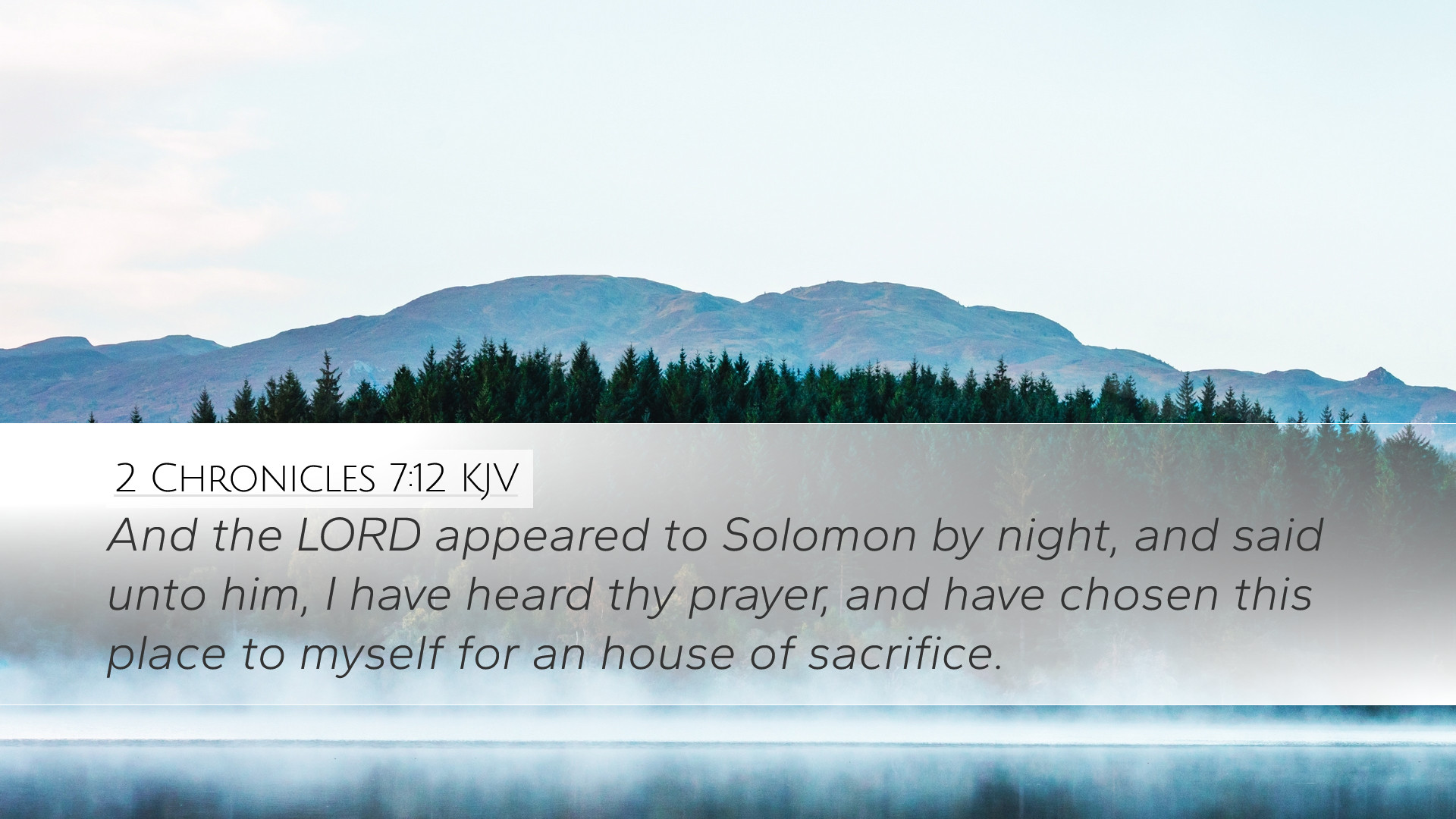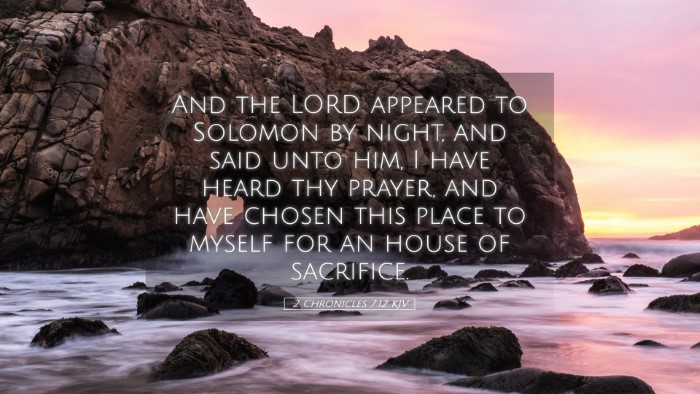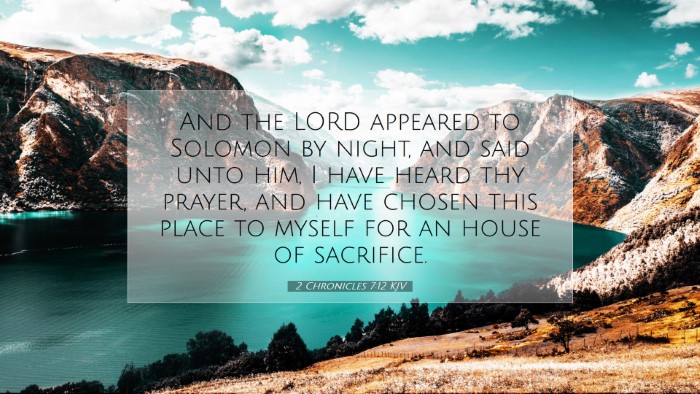Commentary on 2 Chronicles 7:12
Verse Text: “And the Lord appeared to Solomon by night, and said unto him, I have heard thy prayer, and have chosen this place to myself for an house of sacrifice.”
Introduction
The passage of 2 Chronicles 7:12 occurs after Solomon has completed the temple and dedicated it to God. This verse signifies a momentous occasion where divine confirmation and communication with the king unfold, underscoring the importance of prayer, divine presence, and the sacredness of the temple.
Insights from Matthew Henry
Henry emphasizes the profound nature of God’s response to Solomon's prayer, highlighting the significance of prayer in the life of a believer. He notes that it was during the night, a time often associated with solitude and reflection, that God chose to communicate. This points to God’s readiness to engage with those who earnestly seek Him.
He also mentions that the choosing of the temple as a house of sacrifice illustrates God's desire for a place where His people can worship and offer sacrifices. This was not merely a physical structure but a representation of the covenant relationship between God and His people, where God dwelt among them.
Insights from Albert Barnes
Barnes expands on the idea that God’s choice of the temple as a dwelling place signifies a shift in how God operates among His people. He contrasts this with the tabernacle, noting that the temple represents a more permanent and settled state of worship. Barnes emphasizes that God’s promise to hear prayers made in that place transforms the temple into a spiritual epicenter.
Furthermore, he points out that God’s answer to Solomon is both affirmative and conditional. While God affirms His presence in the temple, He implicitly reminds Solomon and the people of Israel that their continued relationship with Him depends on their faithfulness and obedience to His commands.
Insights from Adam Clarke
Clarke delves into the aspect of revelation in this passage, noting that the nighttime appearance signifies a personal and intimate communication from God to Solomon. He points out that the choice of the temple underscores God’s continual desire to be accessible to His people.
Clarke also expounds on the significance of sacrifice in the context of worship. He highlights that God’s house is to be a place of sacrifice where people come not only to celebrate but to earnestly seek atonement for sins. The importance of sacrificial worship reflects the broader biblical theme of redemption and the need for reconciliation with God.
Theological Implications
- The Nature of Prayer: This passage reiterates that prayer is a critical means through which believers can communicate with God, and it shows that God actively listens to the prayers of His people.
- God’s Presence: The temple is selected as a location for divine presence, emphasizing the importance of designated spaces for worship and the conception of holiness surrounding them.
- Faithfulness and Obedience: The condition of God’s blessing is tied to the faithfulness of His people to His covenant, serving as a reminder that divine favor is closely linked to adherence to God's commandments.
Historical Context
The verse occurs in the broader narrative of Israel’s history, particularly highlighting the reign of Solomon, known for his wisdom and the monumental task of building the temple. This act of constructing the temple is significant as it fulfills the promises made to David, Solomon's father, indicating the culmination of Israel's aspirations to establish a dwelling place for God on earth.
Conclusion
In summary, 2 Chronicles 7:12 serves as a pivotal moment in biblical history, illustrating God's desire for a relationship with His people through the sacred act of worship. The insights from Matthew Henry, Albert Barnes, and Adam Clarke reveal the rich theological implications of this verse, emphasizing prayer, divine presence, and the condition of faithfulness. For pastors, students, and scholars, understanding this passage deepens the appreciation of God's enduring covenant and the nature of worship.


